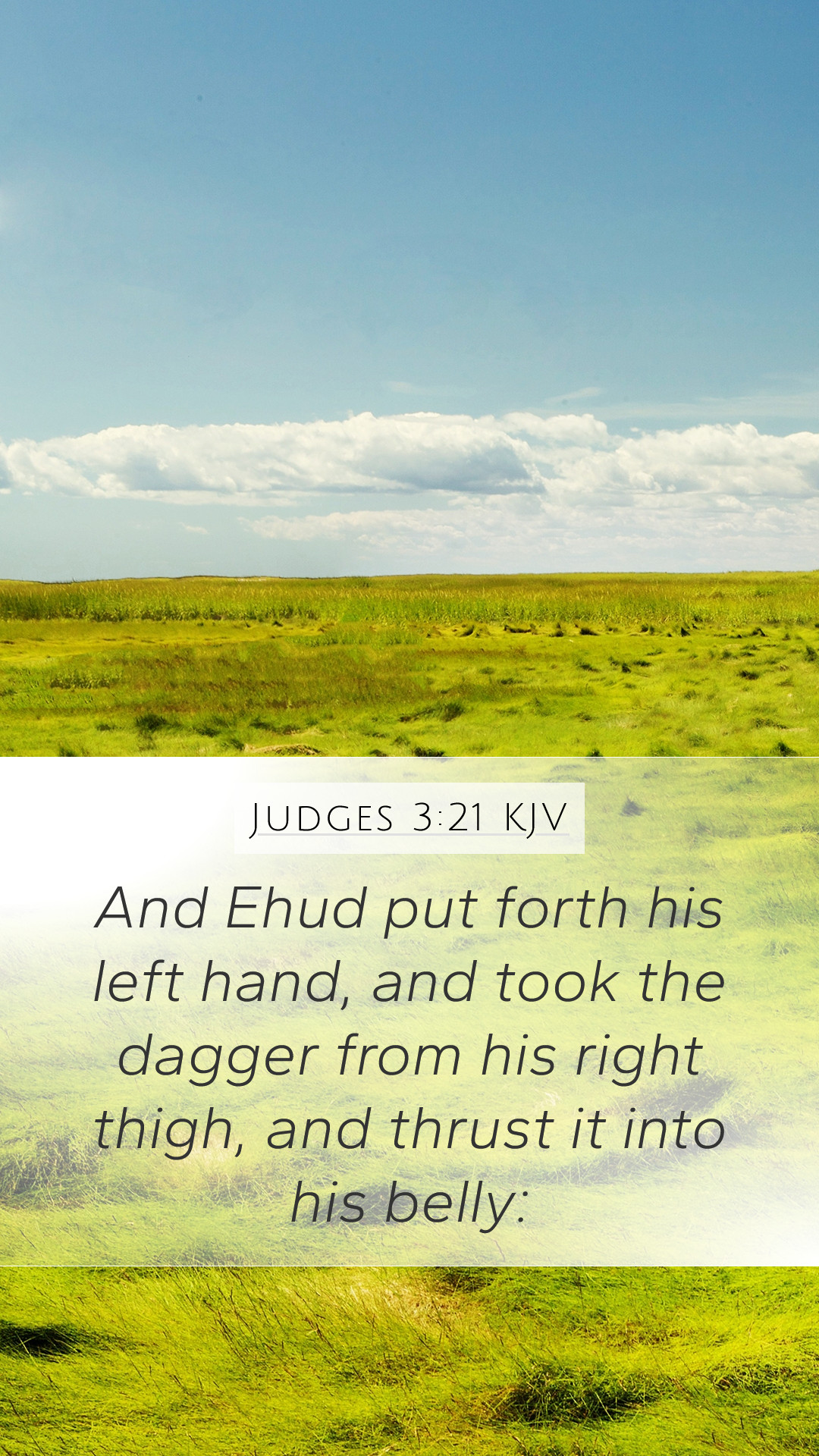Understanding Judges 3:21
Judges 3:21 states, "And Ehud put forth his left hand, and took the dagger from his right thigh, and thrust it into his belly." This verse captures a critical moment in the biblical narrative where Ehud, a judge of Israel, executes a bold and cunning plan to deliver his people from oppression.
Bible Verse Explanations
This verse highlights key themes and lessons from Scripture. The significance of Ehud’s actions can be analyzed through various lenses:
- Divine Providence: God often raises unlikely heroes (like Ehud) to accomplish His purposes.
- Courage and Strategy: Ehud exemplifies strategic thinking blended with bravery in addressing the oppression faced by Israel.
- Judgment Against Evil: The verse also illustrates the inevitable judgment that befalls oppressors, a common theme throughout the Bible.
Bible Study Insights
To thoroughly understand Judges 3:21, consider the historical context of the Israelite's plight:
- Historical Context: The Israelites were under the rule of Eglon, king of Moab, who oppressed them for eighteen years.
- Deliverance Theme: The judges in Israel are often seen as types of Christ, providing a shadow of the ultimate deliverance through Jesus.
- The Physical and Spiritual Battle: Ehud's battle is both physical against tyranny and representative of spiritual warfare against sin and oppression.
Commentary on Judges 3:21
Insights from esteemed biblical commentators enhance understanding:
- Matthew Henry: He notes that the left-handedness of Ehud was both a physical trait and a strategic advantage, allowing him to conceal the dagger and catch Eglon off guard. This emphasizes that God can use our unique attributes for His glory.
- Albert Barnes: Barnes highlights the element of surprise in Ehud's act, suggesting that overcoming oppression often requires calculated risks and divine timing.
- Adam Clarke: Clarke emphasizes the moral implications of the act, noting that while Ehud's actions were brutal, they were portrayed as necessary for the liberation of Israel from tyranny.
Application of Judges 3:21
This passage encourages believers today through its timeless lessons:
- Everyday Courage: Like Ehud, we may face personal or societal injustice where courage and strategy are required to enact change.
- Faith in Action: This verse demonstrates that deliverance often requires active participation from believers in alignment with God’s purpose.
- Awareness of Oppression: The narrative serves as a reminder to remain vigilant against the forces of evil in today’s world, both locally and globally.
Cross References
To enrich your understanding of Judges 3:21, consider these related Scriptures:
- Exodus 3:9-10 - God's plan for deliverance.
- 1 Samuel 15:23 - The consequences of rebellion against God.
- Psalm 34:17 - Assurance of God delivering the righteous out of troubles.
- Romans 12:19 - God's vengeance against oppressors.
- 2 Corinthians 10:4 - The nature of our warfare being spiritual.
Conclusion
Judges 3:21 serves as a profound reminder of God’s ability to use individuals with unique traits for significant purposes. Ehud’s act of bravery and strategic cunning illustrates the interplay of divine sovereignty and human agency in the struggle against oppression. Understanding this scripture requires not only a grasp of the text itself but also the broader narrative of Israel's history and God's ongoing work in the world.


